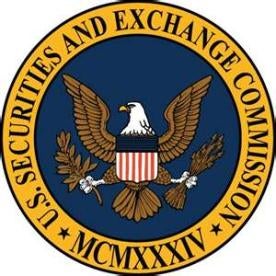Last week, the two Republican Commissioners of the SEC availed themselves of the opportunity presented by the ability to comment on the Financial Accounting Foundation's Strategic Plan Draft for Public Comment to again voice criticism of the principle of incorporating environmental principles within financial reporting. Specifically, Commissioners Peirce and Uyeda stated that "[i]ntroducing sustainability standard-setting to the FAF runs the risk of degrading the independence and effectiveness that are the hallmarks of the FAF's two standard-setting boards, the Financial Accounting Standards Board ('FASB') and the Governmental Accounting Standards Board ('GASB')."
While certain of the Commissioners' criticism was directed toward technical and practical objections to the use of sustainability standards, including "a dearth of well-researched and established expertise," and problems associated "with long time horizons, obtaining hard-to-capture data, applying extremely complex modeling, [and] identifying meaningful metrics," the gravamen of their objection was that "[s]ustainability standards are aimed at a broader stakeholder audience with a diversity of objectives, some of which may conflict with one another," and, most notably, that this was in fact a "politically charged initiative."
The continued skepticism expressed by the Republican SEC Commissioners to financial reporting that incorporates climate disclosures is hardly surprising; these critiques and similar objections have been voiced since the SEC first expressed an interest in climate disclosures. However, the continued efforts by the Republican members of the Commission to undermine and undercut this signature initiative of the Biden Administration's SEC highlights the difficulties in enacting the proposed climate disclosures into effective regulations and provides guidance and ammunition to the inevitable legal challenges to such rules.
Introducing sustainability standard-setting to the FAF runs the risk of degrading the independence and effectiveness that are the hallmarks of the FAF’s two standard-setting boards, the Financial Accounting Standards Board (“FASB”) and the Governmental Accounting Standards Board (“GASB”). The Draft Plan, citing the “growing demand by investors and other users of financial reports for greater consistency and comparability in reporting related to sustainability,” pledges “to ensure our organization can constructively contribute, as appropriate, to any future standard-setting relating to sustainability reporting.” Sustainability reporting is at the center of many conversations in corporate, institutional investor, and regulatory circles. The FAF’s interest in these conversations, therefore, is understandable, but should be tempered by an appreciation for the fundamental differences between accounting and sustainability standards. These differences underpin the argument against the FAF’s involvement in sustainability standard-setting.
https://www.sec.gov/news/statement/peirce-uyeda-statement-draft-financia




 />i
/>i

